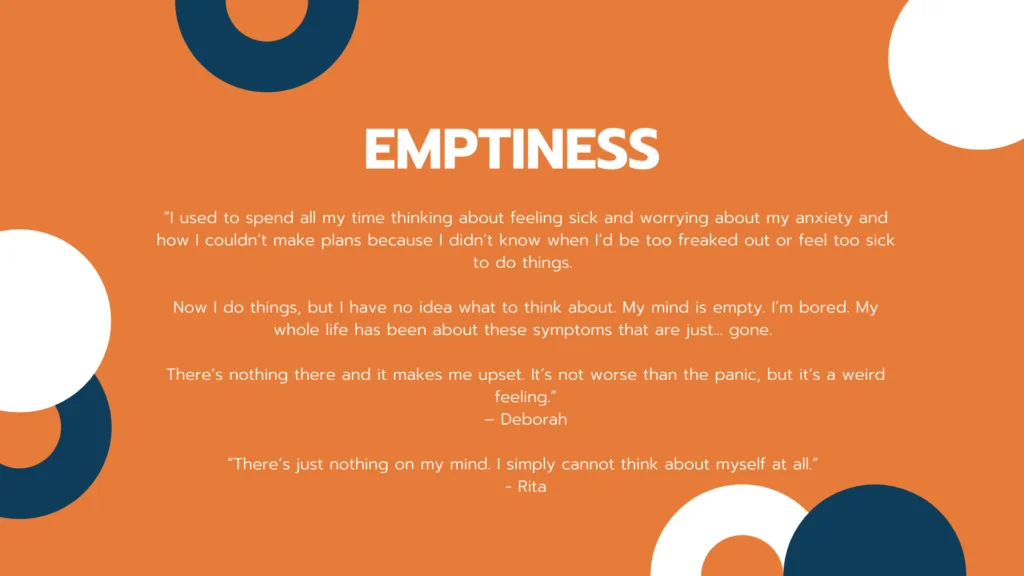What is agoraphobia?
Agoraphobia is a type of anxiety disorder which is characterised by the fear of going to new places alone as these places are considered ‘unsafe’ or ‘dangerous’. People with agoraphobia often stay at home as it is the only safe space known to them, and they are only comfortable with a “phobic companion”. A phobic companion is someone familiar to the person suffering from agoraphobia and they accompany them wherever they go.
Symptoms of agoraphobia:
- Anxiety from being away from a safe space
- Panic attack symptoms
- Breathlessness
- Heart palpitations
- Sweaty palms
- Nausea
- Choking sensations
- Dizziness
- Feelings of extreme fear
- Low self esteem
- Low self-confidence
- Reluctance to leave familiar places or going into new places
- Feelings of depression, low mood and hopelessness
Emptiness
Often times, when patients undergo therapy to treat agoraphobia, they tend to report feelings of emptiness despite being free from their symptoms
Question is, why does this happen? In patients with agoraphobia, they tend to have an anxious attachment style to their caregivers since young. An anxious attachment style suggests that the child shows symptoms of distress when their caregiver leaves their sight. As such, these patients also display ego deficiencies from a psychoanalytic perspective. An ego deficiency is the inability to control oneself or form a structured stable self-representation.
Resultantly, their dependence on their caregivers leads them to their ego deficiencies, in which they are unable to form a strong sense of self and identity, that were meant to be cultivated during the developmental years.
As a result of the overdependence on their attachment figures, adults with agoraphobia grew up thinking that they had to consistently be in the same space as someone familiar or comfortable and they are unable to cross these boundaries, or their lives will be in jeopardy. They emanate a childlike conscious, which needs constant protection and safety. They have also built their ego on the dependent relationship between themselves and their caregivers.
Therefore, their symptoms of agoraphobia overwhelm them and that was what they grew up being comfortable with – being comfortable with the uncomfortable. Ironically, when their symptoms of anxiety and doubt are reduced, they have a sense of emptiness because agoraphobia was what filled the void to begin with and they become lost.
Agoraphobics also behave like they are incomplete without their phobic companions. Part of their ego becomes fused with their companion and they cannot function normally without their other half. As such, their sense of self becomes easily shaken because there is no stable foundation of their self-identity and they require objects or people to feel comforted. This inability to travel by themselves also reflects an inner incompetence to become independent psychically without a physical guide.
Fortunately, there is promising evidence that relational psychotherapy is able to help the patient build that sense of structural identity and regain control of their lives without being dependent on a phobic companion. If you know of someone who needs support, talk to someone today to make your quality of life better.
